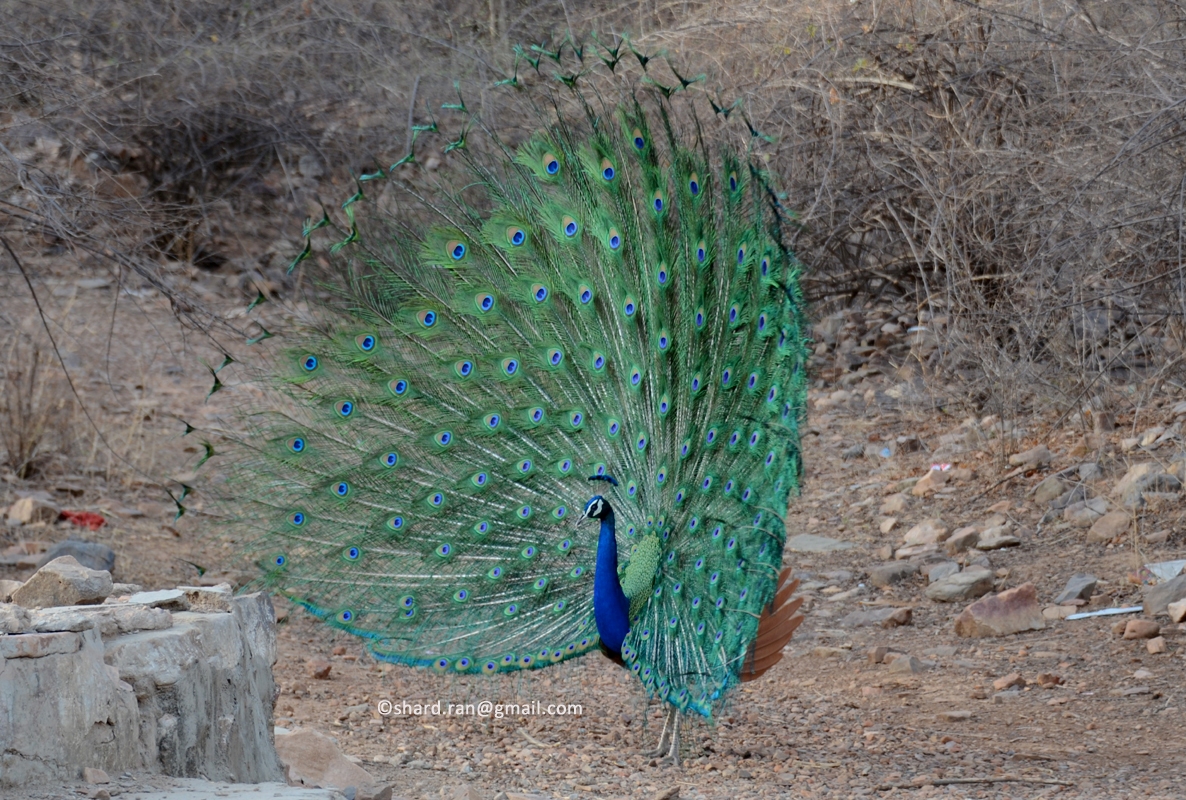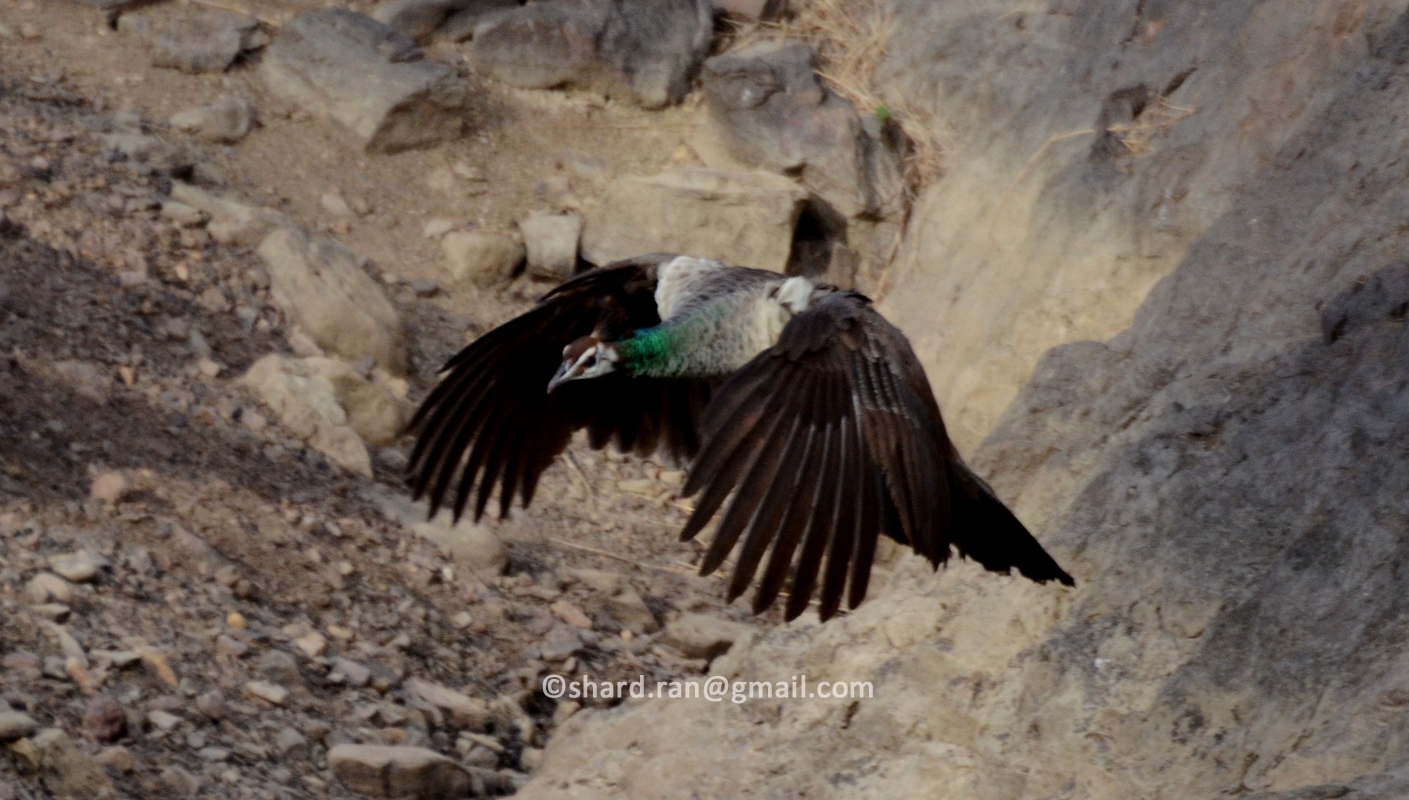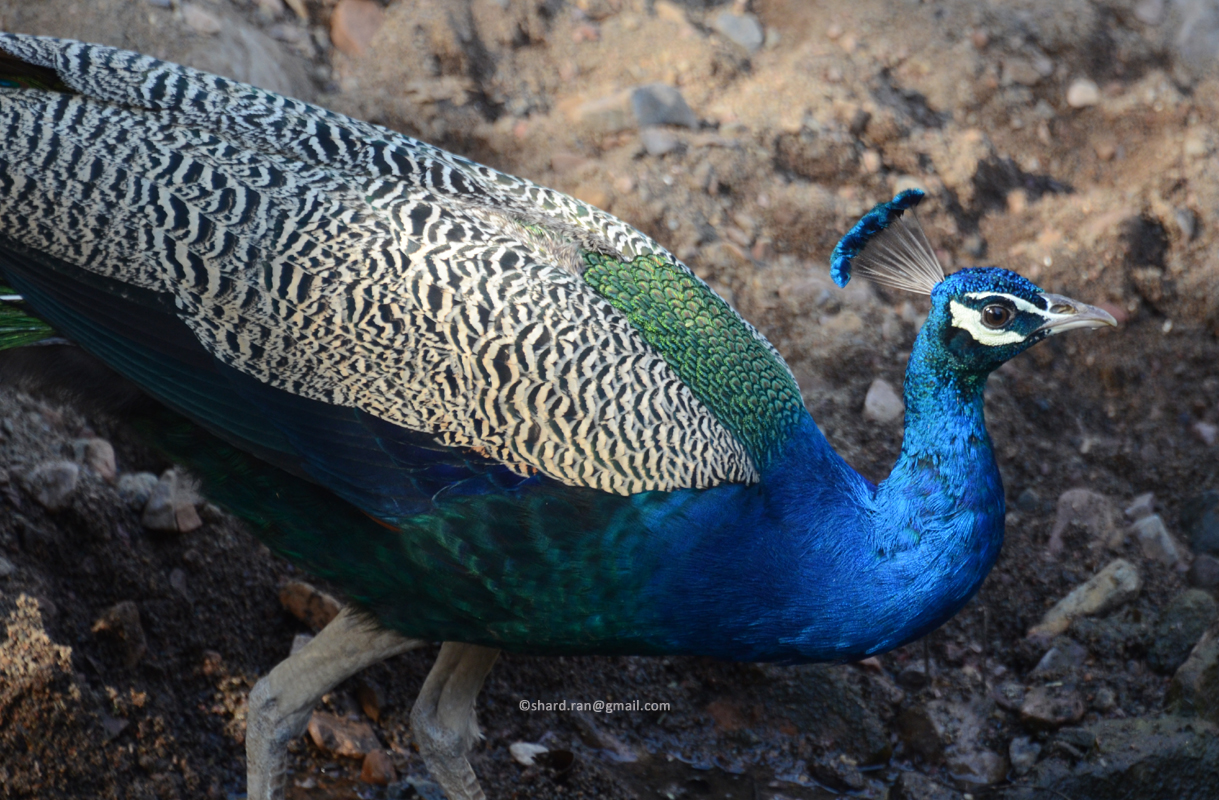-
Indian Peafowl/Peacock (Pavo cristatus)
Common Name Indian Peafowl/Peacock French Name Paon bleu German Name Pfau Hindi/Local Name Mor Spanish Name Pavo real común Local Name in Dialect Mor Size 100-300 cm Local Status Very common Family Phasianidae About the Bird
The Peacock is the national bird of our country. They are large, colorful pheasants (typically blue and green) and well known for their iridescent tails feather displays during courtship.
A peacock’s tail feathers can reach up to six feet long and spread out in a distinctive train that is more than 60 percent of the bird’s total body length. The large train display is used in mating rituals and courtship displays. It can be arched into a magnificent fan that reaches across the bird's back and touches the ground on both sides. The females are believed to choose their mates according to the size, color, and quality of these outrageous feather trains.
All species of peafowl are believed to be polygamous. The males may gather harems of several females, each of which will lay three to five eggs. Peafowl are forest birds that nest on the ground, but roost in trees and gather in groups called parties.
The peacocks shed their train every year after courtship season, so the feathers can be gathered and sold without the birds coming to any harm. The average lifespan of a peacock in the wild is about 20 years.
Peacock

Peahen

Habitat
Peafowl are forest birds and terrestrial feeders that eat insects, plants and small creaturesor
For more information, you can see a perfect video with great information!
Global Status
Not globally threatened
Where To See In Ranthambhore
very easy to spot
Local People Perception
Peafowl such as the blue peacock have been admired by humans and kept as pets for thousands of years.Note
The collective term for these birds is “peafowl.” The males are “peacocks” and the females are known as “peahens”, while the babies are called “peachicks.”


Post a comment